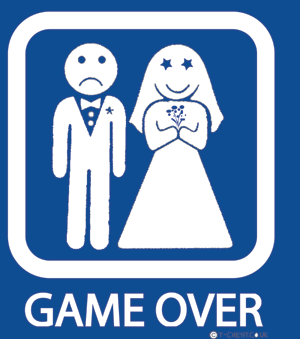Some social scientists call our generation the "Divorce Echo." As Americans, not one of us can say that we don't know anyone who has ever been divorced, or whose parent's were divorced. Because of the boom of divorces in the 80's, we've grown up seeing it all around us. And the chances that you, the reader of this article's parents have been divorced, are pretty high. But what does that say for your future? For your marriage potential? Or your relationship success? You've probably heard that children of divorced parents are fighting and uphill battle when it comes to marriage, they're twice as likely to divorce as people with intact families.
What these rumors boil down to are bad statistics. Originally when all of this data was published, we did see that, on average, these kids were having less success in marriages. However, when we had a second to think about it we thought "That's not right." Sure enough, when we went back to look at it, we had what was called a bimodal distribution. Let me show you.
So what we have here is a two humped camel. I should note that this is not the data regarding marital success of children of divorced parents. I stole this from Google Images and therefore have no idea what data set this represents. However, it is a great representation for proving my point. If you look in the middle there you'll see two words "median" and "mean." Think back to 7th grade math and somewhere in the recesses of your mind you may remember than median simply means "middle" and mean is another word of "average." So! With a bimodal distribution you actually have two averages, but since collected data doesn't actually look like that there graph and actually looks more like this
It's hard to tell what's going on sometimes. Anyway, back to the point. Since we have two averages, it means we have two major groups: one with really low risk of divorce, and one with really high risk of divorce. But when we average them, we get this really low number like the mean in our bimodal distribution above, which causes some problems.
So what this means for children with divorced parent is that they have a choice. The high risk group are individuals who have decided that there is no other option. They have chosen to become a statistic. The low risk group on the other hand, saw their parents' marriage and decided that they wanted better, and their marriages have either been comparable in quality to those who came from intact families, or in a lot of cases, even exceeded them.
I love this study because it shows us that we can choose our destiny. Statistics give us a great understanding of behaviors that increase or decrease our chances of an outcome and then have the opportunity to use the gift of choice to determine our own fate.


